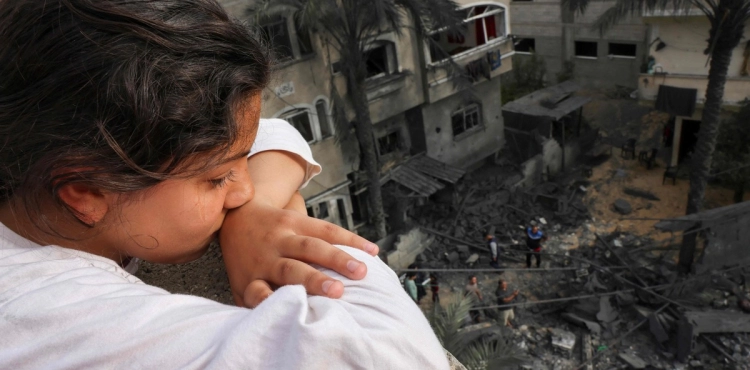In a noticeable trend, Gazans have launched charitable grassroots initiatives aimed at aiding impoverished families in the besieged region. These initiatives seek to alleviate the tragic circumstances faced by the population, grappling with rising poverty and unemployment rates.
Recently, some business owners and grocery shop proprietors have taken the step of forgiving the debts of financially strapped families. Others have offered cash and in-kind assistance, a gesture they consider a small contribution to relieve the financial burdens on families barely able to make ends meet.
Rajab Naseer, owner of a fruit and vegetable store in Beit Hanoun in the northernmost part of Gaza, recently forgave the outstanding debts amounting to $2,000 for numerous impoverished families. He did this by tearing up the ledger containing the debt records for residents in his area.
Naseer, aged 50, stated to the news agency, "There are many families burdened with debts that they will never be able to pay due to the difficult economic situation the residents in the region are enduring."
He added, "These families can barely cope with their surroundings due to the constant feeling of obligation to repay money they can barely obtain through cash assistance, which isn't even sufficient to buy basic necessities for their children."
Thus, Naseer initiated a charitable campaign alongside other merchants in his town to settle all financial debts for local residents, aiming to convey to the poor that they are not alone in facing their harsh reality. These initiatives strive to alleviate the psychological burdens resulting from their dire economic conditions.
Shaher Abu Aouda, a smart-phone store owner, also waived the accumulated debts of dozens of his customers, totaling $8,000. He believes that all sectors of society in Gaza, whether traders or individuals with financial means, need to join forces to allow all students to attend school and continue their education.
Abu Aouda, aged 43, stated, "Unfortunately, both rich and poor residents in the region have been negatively impacted by the deteriorating political and economic situations. However, impoverished families have suffered the most, both economically and psychologically."
He added, "Therefore, we all must consistently empathize with our neighbors and our people and provide relief through charitable initiatives from time to time." He emphasized that these initiatives underscore the concept of 'social solidarity' among a population that collectively endures "oppression, siege, limited job opportunities, and high unemployment rates."
In addition to debt forgiveness, Mohammed Ashraf, a clothing merchant in Gaza City, announced his contribution to 200 school uniforms as in-kind donations to enable students to attend the upcoming academic year.
Ashraf affirmed to the news agency, "Unfortunately, some families are unable to send their children to school due to their inability to provide essential items, such as uniforms and stationery required for studying."
He stressed the importance of cooperation among all segments of society in the region, whether traders or individuals with financial means, to allow all students to attend school and continue their education.
Israel has imposed a strict blockade on Gaza since 2007, following the seizure of control by the Islamic Resistance Movement (Hamas) after armed confrontations with the Palestinian Authority's security forces.
Furthermore, Israel has waged several large-scale wars, resulting in thousands of casualties and injuries, as well as significant psychological distress for many, along with extensive destruction of buildings and infrastructure.
As a result, 45% of Gaza's 2.3 million inhabitants are unemployed, 53% live in poverty, and 64.4% suffer from food insecurity. About 80% depend on international aid, according to Palestinian records and various United Nations reports.
Tahseel Abu Jazar from Rafah, southern Gaza, explained, "The assistance received from the United Nations Relief and Works Agency for Palestine Refugees in the Near East (UNRWA) and the Ministry of Social Affairs barely covers the cost of food for my seven children."
She added that life depends not solely on food but also on other necessities, such as living in a healthy home and providing all the basic requirements for a dignified life for their children.
She appealed for the intensification of such initiatives aimed at alleviating poverty. She also called on wealthy individuals and traders to employ unemployed youth to harness their potential.
Economic expert Samir Abu Madhala praised the recent individual initiatives launched in Gaza. He considered them a significant step to enhance social cohesion in a region grappling with difficult economic conditions.
However, Abu Madhala stated, "These initiatives address only 2% of the crisis faced by the population in Gaza." He stressed the necessity of finding real solutions to overcome poverty, unemployment, and food insecurity, which have deepened in the region over the years












